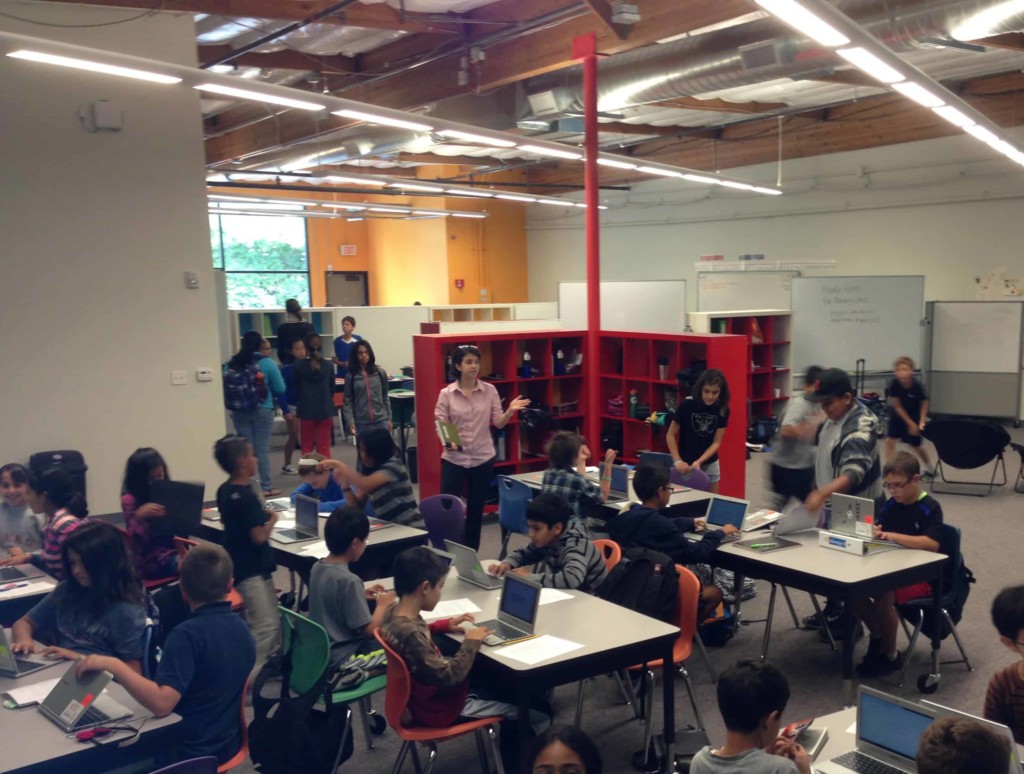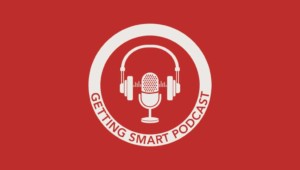Silicon Valley: Global Innovation Engine

The 20-mile stretch from Stanford University to San Jose, Calif. produces more innovation than any place on the planet. As Richard Florida noted, the unique confluence of a great R1 University, venture investors, tech talent, and great quality of life make it a creative hotspot.
By itself, Silicon Valley is third on the list of learning innovation hotspots behind Manhattan and Chicago. If you add San Francisco and Oakland, the Bay Area is by far the important learning innovation ecosystem on the planet.
OER HQ. The Valley is world headquarters for open educational resources (OER). Nonprofit content providers are expanding options and exerting price pressure on the big guys. Consider a partial list:
- Khan Academy: thousands of videos and interactive challenges; Khan’s assessments, learning progressions, and badges (combined with Sal’s advocacy) are creating a valuable picture of competency-based learning.
- OpenEd: more than a million Common Core videos, games, and assessments.
- CK12: Free secondary math and science flexbooks and test prep content
- Gooru Learning: Grade level resources.
- Curriki and OER Commons: Libraries of more than 40,000 open resources.
Along with open resources, the Valley is the birthplace of the freemium business model. Piloted in consumer internet, free resources including Linkedin, Facebook, Twitter that gain viral adoption and develop network benefits (i.e., user value grows with scale). Valley-based free resources with premium and app-store features including Edmodo and Google for Education.
EdTech Central. Learn Capital (where I’m a partner) has an office in San Mateo and has supported almost 50 startups including 11 locals including leading social learning platform Edmodo,professional development platform Bloomboard, online study group OpenStudy, and peer-to-peer language tutoring site Verbling.
Mountain View accelerator ImagineK12 has supported the development of almost four dozen EdTech startups including Class Dojo, CodeHS, NoRedInk, Remind101, and Socrative.
500 Startups in Mountain View has invested in Kidblog, Chalkable, MindSnacks, Magoosh, Motion Math, StoryPanda, and Timbuktu. General Catalyst, Palo Alto, supports Launchpad Toys, ClassDojo, and BetterLesson.
Piazza is a Bessemer backed higher ed social learning platform that started on the Stanford campus. Fidelis Education has a comprehensive set of online learning tools for universities and organizations.
Education Elements in Santa Clara is a pioneer in blended learning solutions. Their single sign-on platform allows schools to combine Web 2.0 content with a single front end and reporting system.
The presence of tech giants Google, Hewlett Packard, Cisco, Intel and the like make the Valley the biggest concentration of tech talent in the world—a great resource for startups.
Creative CMOs. It’s been said that necessity is the mother of invention; that’s why California charters have been more innovative than their east coast colleagues in part because they operate at relatively low funding levels.
- Rocketship Education: the best example of an elementary lab rotation blended learning model with a commitment to the art of teaching.
- Summit Public Schoolsis an innovative secondary school network a great teacher development system and an individual rotation model that blends projects and playlists.
- Downtown College Prep and Alpha Public Schools are San Jose blends. EdElements helped Alpha design and implement an NGLC winning group rotation model (I’m an NGLC reviewer).
With support from the Fisher Fund, Brian Greenberg launched Silicon Schools to support blended school networks. The Schwab Foundation supports Bay Area charter networks including KIPP and Rocketship.
The Hewlett Foundation, on Sand Hill Road in Menlo across the street from the greatest confluence of venture funders on the planet, supported the explosion of OER in the last decade and is inspiring deeper learning in this decade (see papers and school profiles).
District innovation? Unlike charter networks, Silicon Valley districts have been less innovative–but intermediary organizations say that’s about to change.
New Tech is expanding in the Bay Area, with a new school within James Lick High School in the East Side Union District. The diversity of the New Tech Network model continues to be demonstrated in the area, which is also home to Bulldog Tech Elementary School,Katherine Smith Elementary, Los Gatos High School, and others nearby.
Esther Wojcicki’s journalism program at Palo Alto High supports the kind of writing and new media publishing experience all young people deserve.
Nonprofits & Advocates. Disrupting Class co-author Michael Horn leads Christensen Institute efforts to frame the emerging dialog and profile schools adopting blended learning. Scott Ellis is building a blended Learning Accelerator. Strive for College connects high school kids with college mentors. (I’m on the board.)
Stanford. The combination of great weather, lots of investors and a talent magnet like Stanford is hard to beat. What’s new is that a lot of those smart kids want to work in education.
It was Andrew Ng’s 2012 artificial intelligence course that expanded interest in massive open online courses and spurred formation of Coursera which serves 8 million students with 668 courses from 109 partner institutions (Learn Capital is an investor).
A State of Spite. State education policy is pretty dismal, funding is terrible. EdVoice and the charter association have made some progress on statewide authorizing for high performers. Online schools are limited to contiguous counties. Digital Learning Now’s “F” grade reflects state policy.
The world’s leading business formation ecosystem exists in California despite an uncompetitive business climate—a testament to the strength of the talent pipeline and investment community that maintain the amazing gravity of the innovation universe that orbits Palo Alto.
Edmodo, Bloomboard, Class Dojo. CodeHS, Coursera, and NoRedInk are Learn Capital portfolio company.







0 Comments
Leave a Comment
Your email address will not be published. All fields are required.